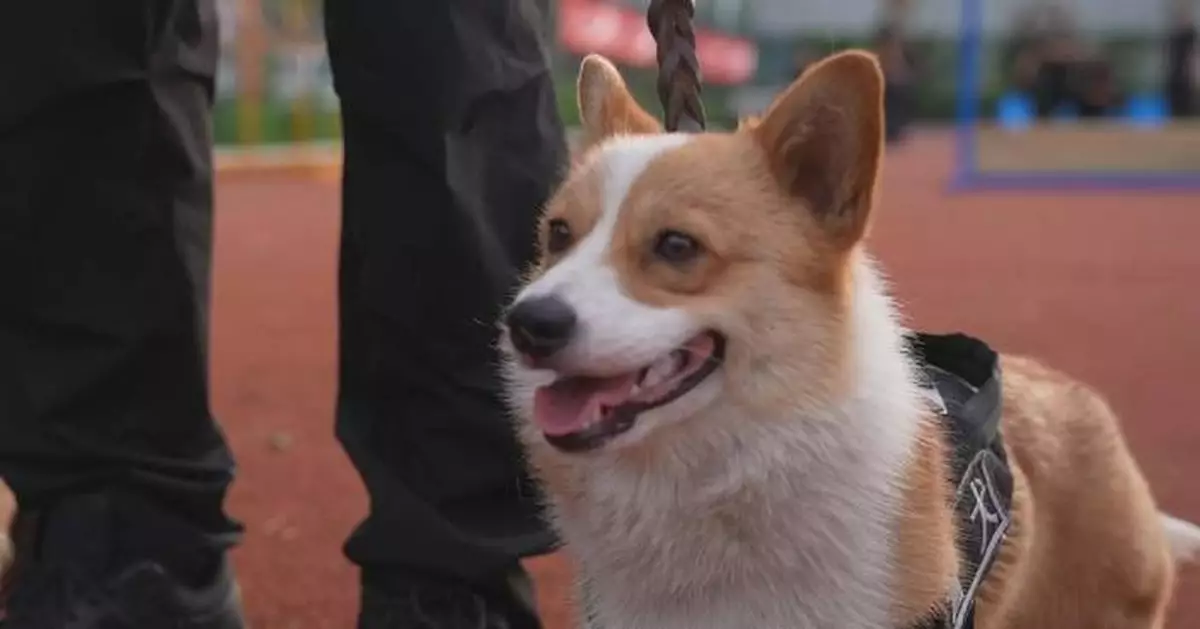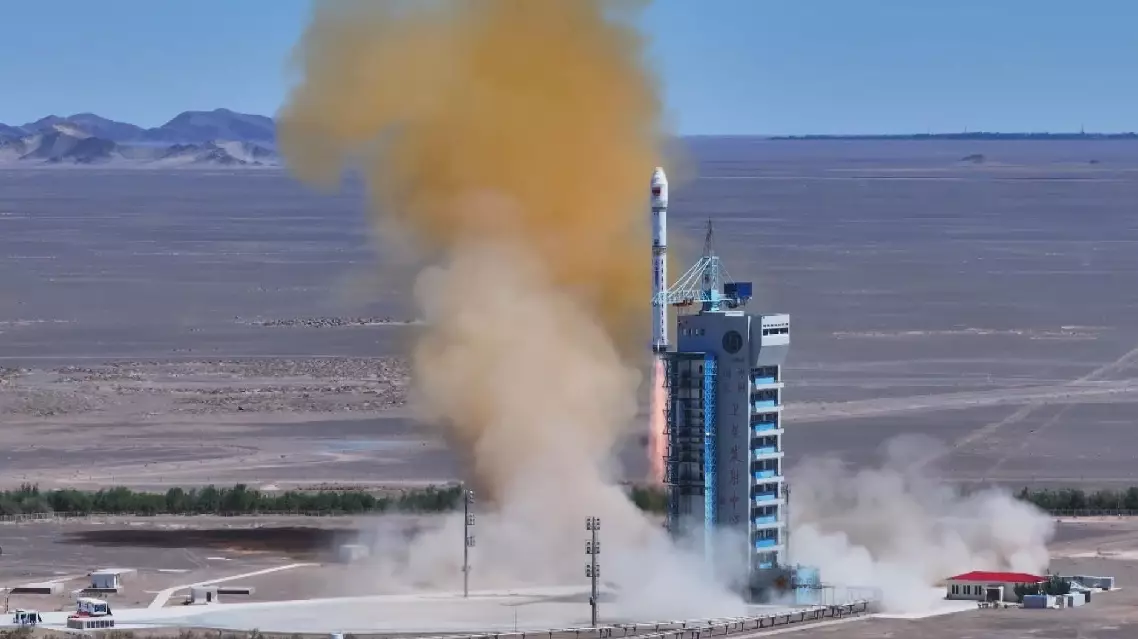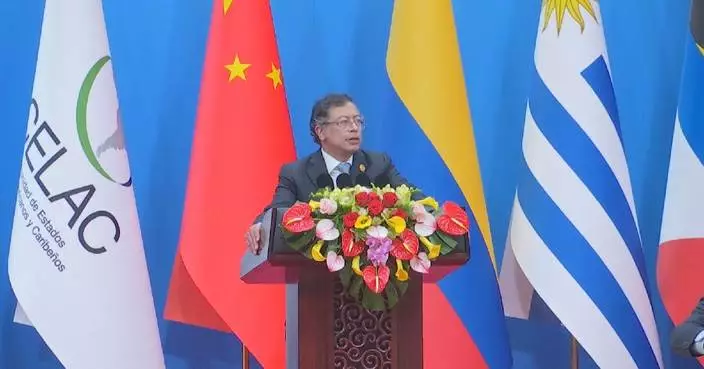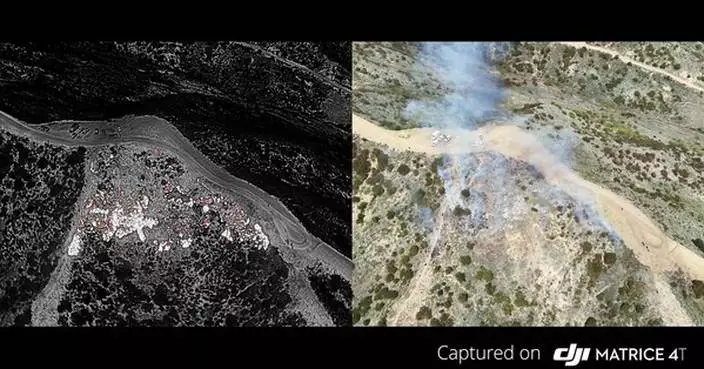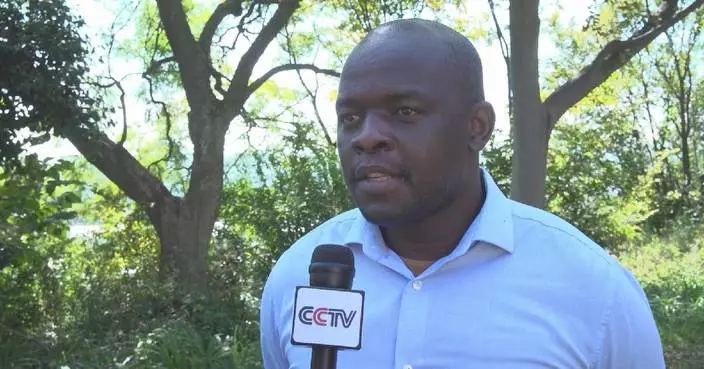Fu Zai, China's first police dog of the corgi breed, has broken the public's stereotypes and captured netizens' hearts with his signature smile, short legs, and most importantly, his outstanding skills in explosive detection.
At the Police Dog Base of Weifang Public Security Bureau in east China's Shandong Province, a round of refusal training was carried out for four police dog candidates, including Fu Zai, who were facing tempting food of chicken drums.
This training is crucial for police dogs, as it will teach them to resist food distractions during critical missions. And for Fu Zai and three other dogs, their trainers left the area once the training began to increase the difficulty. "At that time, Tuan Zi (a Labrador retriever) was the first to fail the training. The command was barely given, and before the trainer was even far away, Tuan Zi had already snatched the chicken drum. And for Fu Zai, he was that kind of dog who has the vibe like a thief. He kept looking back and forth and observed the reactions of the three other dogs. And then, he checked my reaction and other trainers'. And after assessing everything, he seemed to decide to eat the chicken drum," said Zhao Qingshuai, a police dog trainer at the police dog base.
Fu Zai made his public debut in March last year at the police dog camp. In October, Fu Zai officially transitioned from being a reserve police dog to a certified police dog after he passed the assessment with his outstanding explosive detection skills.
"For dogs like corgi, they have strong curiosity. When performing outdoor tasks, they might be easily distracted. And corgi have relatively short legs, which means they might not be able to complete some of the tasks that regular police dogs can," Zhao said.
Zhao never imagined a corgi could serve as a police dog until he met Fu Zai by chance in a nearby park, where the dog showed remarkable interaction skills.
"There's a small park east of our base. Fu Zai's original owner was playing with him there. I asked what his name was, and he (Fu Zai's owner) said 'Fu Zai.' And I called out 'Fu Zai' from a distance, and he came running straight toward me. I felt his interaction with people was exceptionally strong. When I used food to play simple games with him, including the come-here game and spinning. Fu Zai was very cooperative. And his inability to resist food indicated a very high food drive," Zhao said.
This sparked an idea, as Zhao decided to invite Fu Zai to the training base for further evaluation for a trial period to see if he could meet the requirements.
"We trained him during the day, and he went home at night. We slowly observed him. We thought even if Fu Zai didn't ultimately become a police dog, he would still be a remarkable pet. So, gradually, over a month or two, we trained and observed him," Zhao said.
Through this period of training and observation, Zhao noticed Fu Zai was excelled in the training and had the potential to become a sniffer dog for explosive detection.
"For example, we would place the scent of explosives inside a ground stake, a stainless-steel rod with a certain length, and insert it into the ground. When I pointed [the stake], [Fu Zai] would immediately react and signal, and detected it instantly. And I realized how sensitive he was to scents. And just because of his sensitivity [to scents], I decided to focus his training on explosive detection," Zhao said.
What surprises Zhao is the seemingly disadvantage of Fu Zai's short legs has become his unique advantage when it comes to explosive detection. "The explosive detection can involve searching under vehicles and under seats of buses. Larger dogs can't fit into these spaces, but Fu Zai can easily maneuver through them, as his short legs have actually become an advantage to allow him to perform tasks that larger dogs can't," Zhao said.
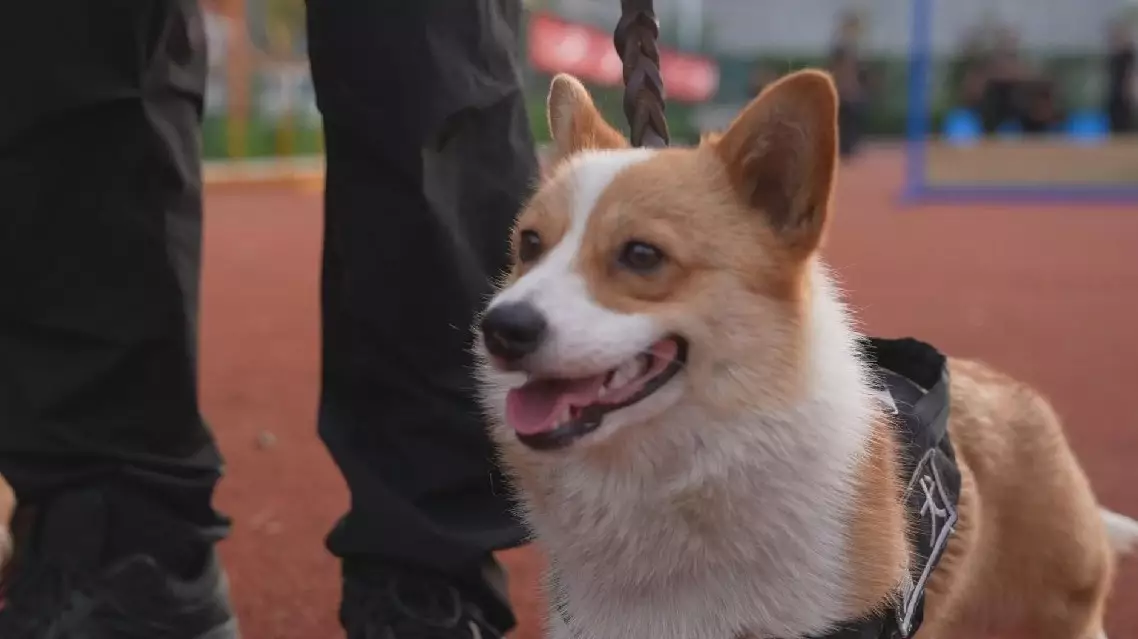
China's first corgi police dog amaze people with outstanding explosive detection skills


